
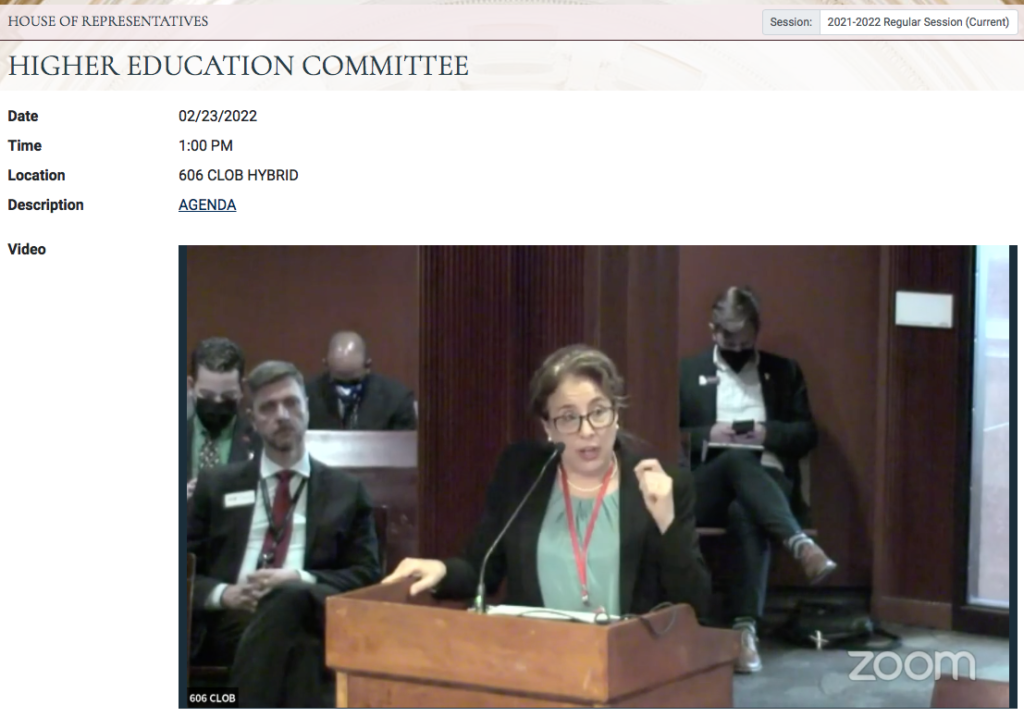
Transcript, GA House Higher Education Committee hearing on HB 932, Feb 23, 2022
Official video archive. HB 932 is the last bill heard.
Transcript by Rev.com. Cost to us: $ 85.75 My time: About five hours.
Hearing began about 1:00 PM ended about 3:15 PM. There was no vote and few committee members. There were 13-14 speakers in favor of passage. Pro-American citizens sent in written testimony against passage. Below is mine.
From: “D.A. King” <Dki*******>Subject: Written testimony for HB 932 in hearing today.Date: February 22, 2022 at 8:01:06 AM ESTMr. Chairman and members of the committee,
Re; HB 932My name is D.A. King and I have been studying immigration laws since 2000 and have been a curious observer of the Gold Dome politics on immigration-related matters since 2005. I am president of the Dustin Inman Society and proprietor of ImmigrationPoliticsGA.com website where we endeavor to educate Georgia voters on immigration-related legislation and policy in the state Capitol. I have assisted in drafting legislation and served as an expert witness on this campus for seventeen years.I urge you to hold a vote on HB 932 at the earliest possible time.I hope all concerned are aware that the language of HB932 puts foreign nationals ahead of Americans in the ability to qualify for instate tuition on Georgia’s public colleges. While a college age cousin who moves to Georgia from Michigan must reside here for twelve months before he can qualify for the much lower instate tuition rates, HB 932 is intended to insure that refugees, some Afghans and a growing class of foreigners with a “Special Immigrant Visa” can migrate to our home state and access the much lower instate tuition the day after they arrive. This is inherently un-American and the tax-paying voters in Georgia recognize that fact without confusion or bias.This legislation is the product of the immense power of the wealthy refugee industry and does not reflect the values of the majority of Georgians who are struggling to make ends meet in their own country. For academic year 2020-2021, the average tuition & fees for Colleges in Georgia is $4,739 for in-state and $17,008 for out-of-state, according to collegetuitioncompare.comOne of the original cosponsors on HB 932, Speaker Pro Tem Jan Jones, has recognized the unfairness and folly of this legislation and removed her name from the bill. We urge the committee not to add their names to the supporters of HB 932 and to put this “Americans last” legislation in the rear view mirror of the 2022 session.Thank you,D.A. KingMarietta, GA. 30066phone *******
dak
____________
Transcript:

Chairman Chuck Martin: (00:00)
In the agenda, we have a number of people, uh, that wanna speak to our last proposition, uh. Representative, uh, Chairman [Cantrell 00:00:13], um, ladies and gentlemen we, we have, uh, before us HB, uh, 932, uh, this, the, uh, the chairmans brought us, uh, um, a proposition, you know, dealing with, uh, folks that, uh, your, your definition, the folks that find their way, their way, uh, in, into the United States, uh, through, through a proper process because of very, uh, a variety of reasons.
Chairman Chuck Martin: (00:40)
I have gotten some communications on this that, uh, are, uh, passionate on both sides. Uh, I just wanna, I wanna stress today as, as I’ve done before, we’re talking about this proposition, as it relates to in-state tuition, as the policy matter before us, we are not, the house higher education committee is not tasked with dealing with the, the United States immigration laws or the laws relating to refugees in the United States of America. We’re not gonna have that conversation.
Chairman Chuck Martin: (01:11)
You can take that up with your, your, your friends in Washington or, or here on a different day, if, if there’s something. So, just wanna ask everybody to do that. Myself and, and my friend Flat Stanley is still, uh, looking for everybody to, you know, have a good and positive discussion. Chairman Cantrell.
Chairman Cantrell: (01:27)
Thank you, Mr. Chairman, members of the committee. I wanna start by just telling you what this bill does not do. It does not grant in-state tuition to someone who would not otherwise receive it. All it does is it removes the, the year, waiting period for those who’ve been assigned to, to live in our state. Uh, last summer, I was privileged to chair the, uh, a study committee on, uh, maximizing global talent in our state. We were looking at how do we help, uh, Georgia continue to be a welcoming state, a state where people can come and enjoy living here, find a good job, own a business, raise their families, get educated, all of these things.
Chairman Cantrell: (02:13)
We had three different meetings across the state. And one of the common denominators that came up at every meeting was education, that, uh, that’s a hurdle for a lot of the refugee com, uh, community, particularly. And, uh, so we began to, after the, after we were done, we had our report. I began to look at, uh, you know, what’s, what was the most common, uh, concern that came out of the committee that we could address? And this is the bill, HB932.
Chairman Cantrell: (02:41)
Basically what it would do, it was, it would allow those who are here under refugee or SIV status, or humanitarian parole from, um, Afghanistan, the way our, our, uh, federal government leaders, uh, botched that, um, evacuation so badly that people were brought over here without the proper paperwork, but they’re assigned to live in our state and we want to make sure we take care of them.
Chairman Cantrell: (03:06)
Um, so it would give folks like that immediate residence in our state only for the purpose of in-state tuition. Most of these folks have already been through an 18 month to three year process.
Speaker 1: (03:21)
Mr. Chairman, can I ask you to spin for just a second? Sure I, I apologize. I, I will only be away a moment, but I’ve been called down, uh, to present a, a bill and I did not know anything about it. I would’ve asked them to schedule, I’m gonna turn it over. Uh, the, the remaining officers of the committee aren’t in the room today. So I’m gonna turn it over to the, the past chairman of, of higher ed to, to do this, uh, until I get back. My sincere apologies. I’ll be back straight away.
Speaker 2: (03:50)
Thank you, Mr. New chairman.
Speaker 3: (03:51)
Yes, sir.
Chairman Chuck Martin: (03:54)
[inaudible 00:03:54]
Chairman Cantrell: (03:54)
Uh, I, uh, that’s pretty much the bill. Uh, remember that the refugees are, are assigned to live in Georgia. Uh, uh, SIVs are special immigrant. Visas, these were granted to people who worked with our military, uh, primarily in Afghanistan, they were translators, other things like that. And then you have these, uh, folks who are here on humanitarian, uh, probation, because in the, the fog of that evacuation, there were folks put on airplane and brought all over, take, taken all over the place, and some of them have been assigned to live in our state.
Chairman Cantrell: (04:26)
So, um, I will say this our church years ago, I began to go to Clarkston, uh, because our church had some, uh, ministry over there, uh, do some sports ministries. And I began to meet, uh, folks in the refugee community and became very appreciative of what’s going on there, appreciative of the work ethic, appreciative folks that want to live the American dream.
Chairman Cantrell: (04:50)
And that’s what, uh, that’s what these folks want. They wanna be Americans and they wanna live the dream. And I just feel like, um, you know, the gov, the federal government has given us a big old lemon and, uh, we’re trying to make lemonade as best we can, uh, and this is, this is just how it is. This is the reality of the situation. These folks are here, they’re here lawfully, and we should not put up artificial hurdles to them getting educated, finding good jobs, owning businesses, and becoming productive members of our society. Who wanna be tax payers too, right? We want them to contribute to our great state. They know Georgia is a great place to live, work and raise a family, and we wanna give them every opportunity to reach their full potential, and that’s the goal behind HB932.
Chairman Chuck Martin: (05:40)
Thanks, sir. We have a few committee members have their questions for you. We’ll start off with, uh, Ms. Marie Mets.
Marie Metze: (05:47)
It’s a very good bill.
Chairman Chuck Martin: (05:47)
Oops.
Rep Marie Metze: (05:52)
It’s a very good bill.
Chairman Chuck Martin: (05:52)
There you go.
Rep Marie Metze: (05:52)
As a matter of fact, my church, the African Methodist Episcopal Church, we’ve been involved with this for many, many years, as you know, and, um, I love it. I love the bill, and I know my grandkids who were born in central America would love this bill. Thank you. That’s my kind of question. Let’s keep this going.
Chairman Chuck Martin: (06:14)
Well, you like [inaudible 00:06:14] Representative Holland.
Representative Holland: (06:22)
Thank you, Mr. Chairman. Uh, Representative Cantrell having been involved with the refugee community for years, this is a great bill. Um, I have, I think it’s a, a common sense way to address an economic development concerns as well, to make sure that we’ve got residents who are contributing to our economy at their full potential. I’ve gotten a lot of emails about this, mostly in support of the bill, but a few that are detractors that I think perhaps have misconstrued with the bill is about to just on the record. I wanted to make sure I understood this correctly. All we are doing is saying for a group of people who have had no land to call home, usually for a few years, who are now living in Georgia, we are saying you are Georgians and you have in-state tuition just like your neighbors. We’re not giving away scholarships, this is not free tuition, this is not a hope scholarship. We’re simply saying like any other Georgian, you have access to in-state tuition.
Chairman Cantrell: (07:08)
With the small, with the one exception is that we are waiving the year.
Representative Holland: (07:11)
Yeah.
Chairman Cantrell: (07:12)
That they have, ’cause they’ve already been through a 18 months to three months, uh, relocation process.
Representative Holland: (07:17)
And That seems only fair. They’ve really had no home for the prior year.
Chairman Cantrell: (07:19)
Correct. The only state they’ve known is Georgia.
Representative Holland: (07:21)
Absolutely. Thank you so much.
Chairman Chuck Martin: (07:23)
Representative Park.
Representative Sam Park: (07:25)
Thank you Mr. Chairman. Uh, likewise Representative Cantrell, thank you for the bill. Um, and, and just for purposes of clarification, you would say that 12 month waiting period that currently exists is arbitrary and necessary?
Chairman Cantrell: (07:38)
Um,
Representative Park: (07:38)
For purposes of these folks who would otherwise be,
Chairman Cantrell: (07:40)
Oh for these folks. Yeah, absolutely.
Representative Park: (07:42)
Oh, thank you.
Chairman Cantrell: (07:42)
Yeah. For folks moving from another state, it makes sense.
Representative Park: (07:45)
Thank you.
Chairman Cantrell: (07:48)
(laughs)
Chairman Chuck Martin: (07:48)
Representative Washburn.
Representative Dale Washburn (R): (07:51)
Uh, thank you, Mr. Chairman. I wanna make the praise for this bill by partisan. Uh, uh, thank you for bringing it. It’s an excellent bill, and certainly in my mind, it is the right thing to do for these people. And the added benefit is, is not only the right thing, it’s a good thing for Georgia and it makes sense,
Chairman Cantrell: (08:11)
Absolutely.
Representative Dale Washburn (R): (08:11)
… in many ways.
Chairman Wes Cantrell: (08:12)
One of the things I didn’t mention, Representative Washburn is that we’ve got more jobs in Georgia that we got people, and this is one of the ways we can address that concern.
Representative Washburn: (08:20)
Yeah. Well, it’s an excellent bill and uh, I hope we get a chance to vote yes on it, uh, soon.
Chairman Cantrell: (08:27)
(laughs) Thank you.
Representative Washburn: (08:28)
But I want to thank you, uh, Cantrell for bringing it.
Chairman Chuck Martin: (08:31)
Thank you. We have, uh, Representative [Holcomb 00:08:37] online.
Representative Scott Holcomb: (08:40)
Thank you Mr. Chairman. Um, Chairman Cantrell, I wanna add my voice to those that are publicly, uh, commending you on this. I, um, I deployed at the fall of 2001 at the start of the operation and the, the role that, um, these individuals played are great risk to themselves and to their families. Um, it, it’s, it’s something that made an incredible difference to everybody who deployed for that conflict over the last 20 years. And so, uh, I, I’m fully, fully supportive of what you’re doing. I wanna thank you publicly, uh, for championing this cause, and I really hope that it, it can pass because it will make world good in a situation, um, that, that really every, everything, every thought that I have about Afghanistan is one of pain and sorrow. And so to the extent that we can, we can change that and, and advance lives in a positive direction. I think that’s a worthy and noble, um, cause. And again, I’m fully supportive. So thank you.
Chairman Cantrell: (09:47)
Thank you for your comments and thank you for your service, Representative Holcomb.
Chairman Chuck Martin: (09:52)
Let’s see. Representative [Apostmediac 00:09:54].
Representative Karen Mathiak (R) : (09:54)
Um, thank you, Mr. Chairman. I wanna piggyback on, uh, Representative Holcomb. Is it not true that a lot of our rep, uh, of our, uh, refugees out of Afghanistan were great help to our military in not only language barriers, but geography, everything? So I’m very proud that some of ’em made it out with their skin and, um, you and I worked on trying to get some people out that,
Representative Holcomb: (10:28)
Yeah, we did.
Representative Mathiak: (10:29)
God knows if they ever really did. I, I’m hoping that your family did. I never did find out.
Representative Holcomb: (10:35)
Yeah, they did.
Representative Mathiak: (10:36)
What happened to ours. I think they went to Germany, but thank you.
Representative Holcomb: (10:40)
I appreciate it. Thank you.
Chairman Chuck Martin: (10:43)
Ma’am. Representative Jackson.
Representative Jackson: (10:47)
Kudos.
Chairman Cantrell: (10:48)
Oh, thank you, ma’am.
Representative Jackson: (10:48)
I just think that this is one of the best bills that I’ve seen. And I’m hoping that all of us will help to pass it because this could be us. It could be us, and the, the sacrifices that were made by the people. And I am definitely in agreement with this wonderful bill. Thank you.
Chairman Cantrell: (11:12)
Thank you.
Chairman Chuck Martin: (11:16)
Any other committee members have comment or question? I see none. We’ll move over to the, uh, guest speakers. I kind of calculated. We’ve got what? [inaudible 00:11:25] figure 13, 14. We’ve got how many minutes, Mr. Chairman?
Chairman Cantrell: (11:30)
(laughs) 13th, 14th.
Chairman Chuck Martin: (11:31)
You got, you got a couple of minutes each, right? You know, chairman can do whatever he wants, but, um,
Speaker 4: (11:36)
Chairman Martin, if I may. Um, could I just ask this committee to be as enthusiastic about all my bills as they are this one? Would that be fair?
Chairman Cantrell: (11:45)
I, I, well, I wasn’t here.
Speaker 4: (11:47)
(laughs)
Chairman Cantrell: (11:48)
Um,
Speaker 4: (11:49)
Oh, it was, it was enthusiastic, Mr. Chair.
Chairman Chuck Martin: (11:56)
We, we, we’re, uh, you, you, you’re welcome to stay there if you’d like, ’cause I’m gonna call on the, uh, the speakers and we’ll let them, uh, go to the, the podium. I, I, I will, uh, I’m gonna get right to it, but you’ll keep in mind that we do have, uh, until three o’clock. We give you 20 minutes, you know, just a minute or two if you can. Um, uh, Darlene Lynch. Ms. Lynch.
Darlene Lynch: (12:21)
Thank you, chairman and members of the committee, and thank you, Representative Cantrell. I’m here on behalf of the Big Partnership, business and immigration for Georgia. Uh, we have been working with representative Cantrell and the bipartisan study committee to find innovative ways to maximize this deep pool of talent that we have in Georgia. Today, one in 10 Georgians is foreign born, more than a million people. And we are really grateful today that every member of the global talent, uh, study committee, Republicans and Democrats came together to sponsor HB932. HB932 is the first bill arising out of the global town study committee to help us build Georgia’s workforce of the future. Um, for these students, for refugees, for those who supported our US military overseas, Georgia is the only state they have ever called home. For nearly 50 years, Georgia has extended a lifeline to people forced to flee persecution and allies who put their lives on the line for our soldiers, and it’s a proud tradition.
Darlene Lynch: (13:26)
This year, Georgia is welcoming up to 2,000 refugees from around the world, and 2000 Afghan allies. Many are college ready. More than 40% have completed their high school or some of their college educations, and many have a level of English that makes them ready to jump right back into school, particularly those who worked with the US overseas. Salma, a young woman who spoke at the New American celebration here in the capital last, earlier this month is a good example.
Darlene Lynch: (13:58)
Until months ago, Salma attended the prestigious Kabul Polytechnic University, where she studied civil engineering. Her dreams were shattered when the Taliban took over that country. Her father had worked with the US for 10 years, and she and her grandmother were evacuated and resettled in Gwinnett. They’re now building back from scratch, and Salma dreams of resuming her studies and becoming an engineer in Georgia, but the cost of tuition is far beyond her reach.
Darlene Lynch: (14:27)
Today’s students like Salma are treated as if they are students moving here from Alabama or Florida or other states, and we understand that, but refugees haven’t moved here from another state, they have been told to come to Georgia. They have been resettled here, not just by the US government, but with the help of the state of Georgia. The state of Georgia has been an active part of the US resettlement program for almost 50 years, and is one of the top states in the nation for refugee resettlement. One reason we have a residency, residency requirement is to prevent out-of-state students from taking advantage of a Georgia education and turning around and go home. But refugees by definition cannot return home. That is a condition of their resettlement. They cannot access an affordable education in Tennessee or in Florida or any other state, Georgia is their only in-state option, and the only state that calls, they call home.
Darlene Lynch: (15:26)
There is another reason why refugees are not like most out of state students. Refugees put down roots in Georgia for generations. They make Georgia their permanent home because Georgia was the one that opens its doors to them when they needed it most. Refugees have suffered enough displacement and separation, and they do not wanna be uprooted again. And in fact, the refugee program is designed to connect people with communities where they can put down roots. We see refugee families pass down family businesses, build on their Georgia education to become doctors and civil engineers, and even win elections to become members of this body. HB932 is a small but smart investment in Georgia students and in Georgia’s future.
Darlene Lynch: (16:15)
I know this is only for hearing today, but I hope we can consider it for a vote this year to demonstrate once again that Georgia is a leader when it comes to welcoming and supporting our US allies and those in need and help the thousands who are arriving here today. Thank you.
Chairman Chuck Martin: (16:33)
Thank you. Giannis Abraha. [inaudible 00:16:37] Close?
Giannis Abraha: (16:40)
[inaudible 00:16:40]
Chairman Chuck Martin: (16:40)
You gotta remember I speak Southern. Yes, sir.
Giannis Abraha: (16:45)
I can, lived here for a while, so I’m becoming Southerner too. So thank you for this opportunity, chairman. My name is Giannis Abraha, I am the executive officer for the AirTrain American Community Associate serving out of Clarkston, and I’m also the co-chair for CRSA. CRSA is the Coalition of Refugee Service Agencies. It’s a group of 21 nonprofit organization that serve refugee in the immigrant communities in Georgia. CRSA members organize work hand in hand with the state of Georgia to welcome our new neighbors.
Giannis Abraha: (17:22)
Just like thousands of refugees, I was settled here at Georgia by one of the professional resettlement agency. From day one, Georgia was my only home state and America was my country. Georgia has given me so many opportunities for my educational opportunity. I went to US Georgia. I got my undergrad in my graduate school. Today I’m living, I’m giving back to my state and to my country, America, by running a small business and community center. This bill would make it easier for many of us to pursue our educational path right away at our arrival and contribute to our state. Therefore CRSA supports this bipartisan bill. It’s a good bill, it’s a fair bill, but it’s also, it’s a necessary bill. Thank you.
Chairman Chuck Martin: (18:28)
Ayaz Aman.
Ayaz Ahmed: (18:34)
Thank you, Mr. Chairman. Um, good afternoon. Thank you for, for the opportunity to, to speak today. I will try to be brief. Uh, my name’s Ayaz Ahmed, I’m the deputy director of programs for the International Rescue Committee here in Atlanta. Uh, I come to you today on behalf of the four resettlement agencies, um, and the many young Americans, uh, new Americans, including refugees, humanitarian parolees, uh, and SIVs that we work with every day. Um, at the IRC, I’ve had the privilege of working with hundreds of young adults in a program that we call, call Connect to Success, uh, which works with out of school refugee, uh, youth and working to connect them with their education and career goals.
Ayaz Ahmed: (19:10)
Um, over the past five years, my experience in this program has taught me that refugee youth and young adults are resilient, determined, and goal-oriented. Um, they’re intrinsically motivated, um, and arrive to the US eager for a bright future after spending years in refugee camps, waiting for their turn to come to Georgia. Um, I have seen, after waiting years to come here.
Ayaz Ahmed: (19:34)
Um, I’ve also seen firsthand how essential the education and vocational training that our students receive from, from the University System of Georgia, how essential those are to the long term economic prosperity of these young people. And this is not just in personal observation, the data from Bureau of Labor Statistics supports this conclusion. Um, the as of 20, the 2018 data shows that the unemployment rate for folks who have a bachelor’s degree is nearly half, or actually more than half than those who are, who are, uh, here in Georgia who have only a high school degree. Um, unfortunately though, it is too often, we see young people who are forced to defer their dreams due to structural barriers. Now, one such barrier is the classification of refugee or SIV or, or now humanitarian parolees as non Georgia residents, and sometimes even as international students, where instead of the, instead of being recognized as the permanent in-state residents that they truly are.
Ayaz Ahmed: (20:32)
This difference can translate to an additional 10,000 to $30,000 in yearly tuition for Georgia State University for those that are treated as non-residents or international students, respectively. When a refugee or SIV young adult faces that course, they defer their dream, and all too often, it’s not just for that one year and sometimes longer that it takes to get their permanent card, permanent residency card. Um, I’ll share with you a story of, of one such student who arrived, um, with, and I worked with at the IRC. Um, I’m gonna call her Sara. Uh, Sarah came to Georgia with, with her family as an SIV, special immigrant visa from Iraq in 2018. Um, she was 21 years old at the time. She was forced to flee Iraq with her mother and her younger sister, uh, because her family assisted our soldiers in Iraq.
Ayaz Ahmed: (21:23)
She came here with a high school degree, came to Georgia with the hopes of pursuing multiple careers, who’s a very young, uh, a very motivated young woman. She wanted to do both pharmacy, IT and modeling all at the same time. She met all of the requirements to go to an IT program at GSU. However, when she realized the cost that that tuition was going to be, she decided that she can’t deal with that, she cannot pay that course. So instead, she started working. She told herself that she would continue next year. Next year came, and when we approached her and we were working with her one on one to, to reapply for school, she hesitated and she told me that, you know, she thinks that she had, she’s missed her chance. She shared that the only option left for her was to work and support her family so that her younger sister could one day achieve her dreams.
Ayaz Ahmed: (22:18)
And I can recall vividly the heartbreak in her voice as a young 22 year old tells me that her chance is gone all because that one year had elapsed, right? So although this one year for some people may seem like it’s such a small deal, let’s have them wait for 12 months, nothing, nothing’s really gonna change. Now we have to understand that there’s so much going on in the lives of these young people and there are so many more responsibilities on them that, that in one year it really can mean the difference between someone who is going to continue working part time, waged labor positions, or someone who’s going to be able to pursue her dream and become an IT professional, or to become a pharmacist or a model.
Ayaz Ahmed: (22:58)
Um, we know that, you know, so therefore I urge all of you to allow Georgians like Sara, to pursue their dreams. We know that with the access to the right opportunities, these young people can achieve their dreams and forge successful lives right here in Georgia. Thank you again for your, for your time.
Chairman Chuck Martin: (23:15)
Thank you very much. David Roth. I, just please, Mr. Roth. Uh, I’m I’m gonna go to the next person just to let you know you’re next, just to help us move along. I’m not rushing you Mr. Roth. Uh, Chris Purdy will be, will be next.
David Roth: (23:31)
Thank you to the chair and committee members, and thank you for the invitation and opportunity to speak. My name is David Roth. I’m a graduate of the Candler School of Theology at Emory, and also the director of Memorial Drive Ministries. MDM is a Christian, nonprofit in partnership with the Presbytery of Greater Atlanta that offers a shared space for congregations and nonprofits that serve the diverse Clarkston community. MDM has been supported by over 25 different congregations across Atlanta that support our vision of an end to disconnectedness for refugee..
Speaker 1: (00:01)
MDM is also a member of the business and immigration for Georgia partnership. In my work, I spoke recently with an Afghan man, an interpreter that I was working with, who shared with me the story of his brother. His brother is a husband and father to three children. The oldest of whom was high school age, last year, when the Taliban took over Kabul in August, he immediately lost his life savings that he had had in the bank, an equivalent of over $55,000 U.S., all that he had worked for in Afghanistan for years and decades, all that he had planned to invest in his children who wouldn’t and his children, and pass on to them through the give of education, especially for his daughters who wouldn’t have been afforded educational opportunities out the Taliban.
Speaker 1: (00:46)
He fled Afghanistan escaping with his life and his family, but without the assets and opportunities that so many of us who haven’t lived through war can take for granted. When a man like that, a family like that arrives here, the ability of that child to access in-state tuition is no small thing over and over again, in my conversations with refugees, I’ve seen the sacrifices parents make for their children and heard their hopes for their children’s education.
Speaker 1: (01:11)
It’s one of the key priorities that comes up over and over again. In addition, the faith community that I’m familiar with here in Georgia, too, which has been a vital supporter education in our state for so long shares, this hope with resettle refugees. We know that war interrupts education and that returning to school is often a critical step in ameliorating the effects of violence. This legislation would allow those whose lives have been uprooted due to persecution to continue their education without further interruption, and do it in a way that I believe will benefit, not only my community in Clarkston, but all Georgians and the economy as a whole.
Speaker 1: (01:48)
My faith teaches me that hospitality is for everyone, the native born and the foreign born alike, and to do unto others as you would have them do unto you. And Georgia’s faith community has a long history of supporting refugee resettlement and keeping Georgia welcoming in person to person, concrete and practical ways. Thank you to the house global talent study committee for the important work you have done. And the report’s recommendations around reducing barriers to admissions to Georgia public colleges, uh, and also the way that HB932 follows through on that by granting resettled refugees in Afghan allies, in state tuition at Georgia public colleges and universities immediately are powerful. Thank you.
Chairman Chuck Martin: (02:31)
Chris Purdy you’re next. Uh, the, the next speaker I have is signed up as Jennifer Lee and associate. So Jennifer, if you’re out there.
Chris Purdy: (02:41)
Good afternoon, my name’s Chris Purdy and I’m the director of veterans from American as a project of human rights first. Uh, I, uh, I served in the United States army for eight years, a combat engineer where I deployed to Iraq. And I now lead a group of about 10,000 veterans and allies around the, the country, um, that, that, that care about the Afghan issue deeply. Uh, we worked with, uh, the, our Afghan allies as they were evacuated during and after the collapse, the democratic elected government and were driven by a simple premise that America made a promise, uh, that we would be there for our Afghan allies when they needed, when they needed us. And we would need leave. No one left behind, in the last six months, since the fall of Kabul, a quiet army of veterans here in Georgia have been, uh, and across the country have been working hard to continue to rescue Afghans.
Chris Purdy: (03:26)
Who’ve been left behind, uh, to the mercy of the Taliban. These folks have spent late nights on their phones and laptops at kitchen tables and their offices working to honor that promise since that time veterans successfully worked with the federal of government to bring over 88,000 Afghans to the United States with over 1700 finding a home right here in Georgia. Uh, we’ve now turned our attention from bringing out those allies, uh, uh, home from Afghanistan to helping them restart their lives, uh, lives that they had stolen from them when we withdrew from their home and abandoned to the Taliban. One of the things that has been taken from them, both in Afghanistan and abroad is the right to an accessible education that Taliban has denied them the right to a free education at home. Those who are on refugee camps are denied, uh, access to a true education there.
Chris Purdy: (04:13)
Uh, and we must give every opportunity to those who have, uh, resettled here in Georgia, uh, to that education here, we owe with them that at least by, uh, allowing our newly resettled Afghan allies to pay the same tuition rate as those who help them bring them here, we make that dream of education more attainable. Every barrier to education that we remove is one more promise kept. And every helping hand that we offer is one that will wipe away the stain of our national failure. Veterans are looking to our leaders a at every level are at every level, help us and help us standard of care. And this bill helps Afghans not only helps AF service, but it honors the service of those who brought them here. Thank you.
Chairman Chuck Martin: (04:54)
Thank you. Uh, Ms. Lee, Jennifer Lee, uh, Ms. Lee, Jennifer Lee.
Jennifer Lee: (04:59)
Uh, I’m the associate part.
Chairman Chuck Martin: (05:03)
Oh, I’m oh, okay. Oh, Jennifer Lee. Oh, I Was saying if it was, if it was the Jennifer Lee, I knew it was, uh, it was a new one. Yes. Ma’am yes. Uh, good. Tell us, I’m sorry, just since I only had associates, just tell us who you are if you’re representing a group.
Crystal winos: (05:17)
Um, well, good afternoon. My name is crystal winos. I am the immigration policy analyst that Georgia budget and policy Institute. Um, I would first like to thank the committee for holding this hearing. This is a great piece of legislation, and we hope to, um, succeed that it’ll get to a vote. Uh, I’m here today to voice support for House Bill 932. Um, we at GBPI have long supported policies that make postsecondary education more affordable and accessible for student, for our students from all different by backgrounds and HB932 aims to reduce barriers for specific groups of Georgia students, which is SIV holders and refugees who currently have to wait at least a year for instate tuition. Um, as you know, delaying post-secondary education is very costly to most students and it be, it can become difficult for them to return and even finish their education.
Crystal winos: (06:03)
Um, affordable education is a benefit to students, their communities and the state, um, in Georgia, the median income for somebody with a bachelor’s degree is 48% higher than somebody with just some college and an associate’s degree. And the medium income for somebody with a graduate or professional degree is 26% higher than someone with just a bachelor’s degree. Um, communities with higher levels of education, also experience less crime, lower incarceration rates, greater participation in school civic and religious organizations. This could also be a benefit for Georgia as well, um, with addressing our labor shortages as well as combining low enrollment rates in colleges. Um, in closing, we believe that every, um, individual who is qualified and wants to pursue a technical education or pursue higher, uh, post-secondary education in Georgia should be able to pursue it. Thank you.
Chairman Chuck Martin: (06:57)
Thank you. Mothobola mas, Mussad, Help me out here. I apologize. I am so sorry.
Hasinja Lucuze: (07:09)
Yeah.
Chairman Chuck Martin: (07:09)
Please help me with your answer. I’ll do better.
Hasinja Lucuze: (07:13)
Yes. Thank you, Mr. Chairman, and I’m honored that I have the opportunity to stand in front of you and talk about the impact of, uh, the impact on the of House Bill 932. I’m [Hasinja Lucuze 00:07:27] one of the new Afghan resettle refugee in Georgia. I have been in Atlanta for five months and my family relocated here to have a better life here. Most of my family members are here and all of us be excited and very motivated to get our career back on track. And also all of us are, um, excited that the U.S. will provide work for us. And also, especially for me as an Afghan women, I often my much my bachelor degree in public health from Kabul medical university in 2017 and start my career in, uh, ministry of public health. And, uh, later of that and United Nation Children Emergency Fund or UNCEF where I led, manage, coordinate and monitor nutrition development and nutrition emergency programs in 35 province of Afghanistan.
Hasinja Lucuze: (08:27)
Uh, I hope, and I strongly believe my experience and my skill will, uh, will be an added value to the community and contribute to the healthcare system of Georgia. Uh, having the opportunity to study in one of the United Nation prestigious university was my childhood dreams. So I tried to apply for one of the scholarship by the name of Girls Empowerment scholarship when I was in grade seven. So that led me to opt in my high school in USA, but due to the cultural issue, my parents didn’t allow me to come here or to study abroad of my country. So, but now I think my dream will change to reality.
Hasinja Lucuze: (09:15)
Us. Uh, we Afghan suffer a lot. We were working to be able to stand on our own and support our families and contribute to the betterment of our country. But last year, everything changed and destroyed as a nest of bird by a whole stream, strong with the US recursion of Afghan refugee to this country. We now find the chance to survive and hope for a secure life, but the opportunity of additional education as then of, of our professional career, we, we can contribute to the growth and economy of Georgia. Our second homeland is a, uh, is a idea of us, passing a House Bill 932 would help many, Afghan refugee, like me who want to further their education, uh, demonstrate their professional skills to the Georgia workforce and allow us to be able to break the chain of leg of access to Afghan women. So thanks for consideration of this Bill, thank you.
Chairman Chuck Martin: (10:24)
Thank you very much. Suly uh, Suhami. so Welcome.
Suly Suhani: (10:38)
Uh, good afternoon, chairman Martin. Hope you’re doing the well members of the committee at fellow Georgians. Hope everyone’s doing well today. Uh, my name is so Suly Suhani. Uh, I’m a senior community organizer with Georgia Muslim Voter Project. Also known as GMVP and GMVP is a nonpartisan nonprofit organization that’s dedicated to building power for Georgia’s diverse Muslim communities through civic engagement and voter registration. And we also serve communities that have been underrepresented in our state for far too long, including our rapidly growing and vibrant immigrant refugee communities. And I want to begin by expressing our support for HB932 and applaud a representative Kentrel and also the sponsors of this bill for pushing to extend instate tuition for our friends who identify as permanent residents, refugees service, special immigrants, and who also hold other lawful classifications. Many of the residents who will benefit from this inclusion are Muslim, and any of them, especially those who come from the direst of situations.
Suly Suhani: (11:42)
Um, this will leave a legacy that spans generations. It will provide a stepping stone for these individuals to become active and contributing members across Georgia, and additionally create pathways to eventual, to eventual prosperity for families who have endured conditions worse than we can ever imagine. And as the American born son of immigrants, I want to thank you. To those of you who may not support this bill or who maybe are on the fence. I’d like to highlight a couple of statistics about our immigrants, refugee friends here in Georgia. Firstly, according to data received by the American Immigration Council in 2018, immigrants made up 10% of Georgia’s population. And I’m sure that today, that percentage is even higher. And when we think about our workforce or amazing workforce here in Georgia, 13% of workers here in Georgia are immigrants as well. And so clearly our immigrant communities are definitely integral to our state.
Suly Suhani: (12:40)
HB932 provides a prominent sector of our population with increased educational access and therefore promotes economic mobility for our communities. I encourage you all to recognize this Bill as an opportunity to further empower our immigrant and refugee families who as the data shows have a positive economic and cultural impact on our state. And lastly, I wanna encourage you all to include DACA or Deferred Action for Childhood Arrivals individuals within this bill, especially considering that 21,000 that over and 21,000 DACA identifying residents live here in Georgia. And considering that these residents have lived in Georgia for the majority of their lives, we believe the same extension should be granted to them as well, as they contribute to making Georgia a more diverse, more inclusive and a more welcoming place for everyone. Once again, I encourage you all to pass this Bill and I additionally include, and also additionally include our DACA identifying individuals and community members within this bill as well. I truly believe that this Bill will leave a positive and lasting legacy for all of our families. Thank you. And I’ll you look for any questions?
Chairman Chuck Martin: (13:55)
Thank you. All right. Um, Cindy Battles, Uh, Lilian Alabato is next I forgotten I was supposed to be doing the object matter. So Cindy, please and miss Batle.(Laughing)
Cindy Battle: (14:15)
Chairman. I believe that a lot of the points that I was going to make were more eloquently made before and quite possibly made more eloquently after. So as the policy director of the Georgia Coalition for the People’s Agenda, first of all, all I wanna do is just throw our enthusiastic support behind the Bill. Um, it’s nice to speak for a Bill, especially when education um, and the importance of good education have been the topic of the session. Um, the one thing that I would add as a redacted number of years old individual in the state of Georgia is-
Chairman Chuck Martin: (14:49)
[inaudible 00:14:49]Well allow
Cindy Battle: (14:52)
Going back to what was said earlier about the importance and the ti- of the timeliness of this bill. Um, allowing these, um, allowing those who would qualify under this Bill to go ahead and start getting their education at the in-state tuition. My only ask would be that instead of having a hearing only, um, you bring this up for a vote as soon as possible. Thank you.
Chairman Chuck Martin: (15:13)
Thank you. Um, moving on, um, Liliana, am I doing that right? Lilana? I dunno if that’s an I in it or not. Yep. There is an I. My, my eyes weren’t. Are you here? No. Okay. Um, Kareem are you Karim, Uh, my eyes are really just fudging up on me. Asiem? There you go. Yes. And then we’ll we have two people that have signed up one person. Okay. But Janti Joseph.
Kareem: (15:55)
Yes, sir. Good afternoon chair. Uh, deputy chair Flat Stanley. The members of the house, high education committee.
Flat Stanley: (16:06)
Flat Stanley. Thanks you. (laughing) I, I, I don’t mean to, to do that, to take, this is a very serious issue, but I do, uh,
Kareem: (16:14)
no, I’d have to recognize them.
Flat Stanley: (16:15)
It, it means a lot. Thank you very much.
Kareem: (16:17)
Definitely, definitely. Um, and thank you to, uh, the rest of the committee. Who’s still here. Uh,
Flat Stanley: (16:24)
we, we have, I mean, let me set suit, we have, um, people that have had to leave the meeting. There are, there are people that have joined online. So I wanna wanna do that and allow me to take a little time away. You, uh, your your bill sponsor, uh, sent me a text up here. He was called out on a bit of an emergency situation. So he didn’t walk out Um, chairman Can Trent would not walk out on you and did not walk on you. He asked, uh, the, the chair’s latitude to, to tend to that emergency. So that’s where chairman Can Trent went.
Kareem: (16:52)
Thank you for, uh, given us the time. I mean, I know we’d have gone over, um, my name is Kareem Amasime. I’m the director of government affairs for the Georgia chapter of CIAR. Uh, the council of American- Islamic Relations, uh, CAIR is the largest Muslim civil rights organization in the country. And our chapter represents Muslims all across Georgia. Uh, I’m here to ask that this committee hold a vote in favor of HB932.
Kareem: (17:15)
Uh, last summer, our country rushed to evacuate thousands of Afghan allies who had risked their lives for the U.S. Mission. Uh, these include security officers, interpreters, and others who serve alongside our military, doing dangerous work, as well as those who stood up and helped the United States advance democracy education and equal rights. Today, Georgia is playing a lead role in welcoming our allies. The state has a long and successful history of welcoming refugees dating back decades. In fact, this is something to be proud of. Georgia’s resettlement program has been so successful. It has become a model for the nation with nearly 90% of refugees. Self-sufficient in just six months. This participation in the U.S. refugee program has in returned, greatly enriched Georgia people bring skills and talents to the state from other countries around the world. They fill critical work force gaps in healthcare, food processing, hospitality, manufacturing, literally every sec sector you can imagine.
Kareem: (18:11)
And just like these newly arrived, Georgia residents help enrich our state. It’s our responsibility to ensure that we’re providing them with the proper resources. HB932 is a way for Georgia to show its gratitude for their sacrifices and provide them with these resources passing. This bill is not only the right thing to do for the thousands of Georgians it helps, but it is also good for of the state and our economy for these individuals, Georgia is the only state they have ever called home yet, they many must fore go their dreams of higher education because they cannot afford out-of-state tuition and research shows that if they don’t go to school in their first year, many never go to school. And instead they stay in jobs below their abilities, allowing these motivated students to restart their education without delay is smart business for Georgia and, uh, urge you to pass this quickly. Thank you.
Chairman Chuck Martin: (18:54)
Thank you very much. It’s Joseph
Fianci Joseph: (19:03)
I’m Fianci Joseph political director at the Asian American advocacy fund, um, and equally excited to see Flat Stanley here today. We have a long family history. I’m actually excited to, to be here today in favor of a Bill. Something that doesn’t happen too often. Um, we are here to say that we fully support HB932, um, and would encourage, um, this committee to bring it to a vote and look forward to seeing it come to fruition as law. Um, however, we do wanna say that as you consider this Bill, which is very important, um, we also request that you take into consideration our DACA recipients, um, and our other undocumented populations who aren’t, who may not be covered under DACA, and really think about them in under any legislation that advocates for tuition and tuition equity in the state of Georgia. Our undocumented population is left in literally no choice after their K through 12 education.
Fianci Joseph: (20:15)
These students work hard to go on to be paying tax paying productive contributors to society while holding the huge burden of debt due to out-of-state tuition costs or without access to upward economic mobility. In one of the previous bills, we heard all about the large student debt in Georgia, and they’re a huge part of that debt. Um, HB932 is a great step. We love the direction. We love the Bill. Um, but we just urge you as you consider tuition and access to education, um, that you expand the benefit to benefit all the undocumented students in Georgia, which in turn will benefit our state greatly. Thank you.
Chairman Chuck Martin: (21:05)
Thank you very much. That us, all the, um, speakers that we had, uh, signed up, uh, previously. And we, I think everyone for uh, being brief saying what I hope you, you wanted to say, but, but taking, uh, into account that we had other speakers because I believe we got everybody that had signed up. There were some um, folks. Um, if you notice when the, the, the, um, notice went out I asked that that people you know, sign up and if you couldn’t be here to send your, um, notes in writing, because I, I absolutely didn’t want to chill people to, to comment online, but I absolutely wanted to get to the folks in the room prior to the, uh, or, or before folks were uh, online. we do have in your packets uh, ladies, gentlemen, on the committee you do have some printed remarks that we ask if uh, um, they cared to comment remotely.
Chairman Chuck Martin: (21:56)
We might not be able to get to them. And as, as we saw, we, we have not. And so you have some written, uh, remarks in there. Let me just say this because I know we have a committee waiting to get in here is um, you know I’m, I’m sympathetic to you know, of the, the, uh, comments I’ve heard and, and the things I’ve heard about it, you know, here’s my pause. And, and I wanna make be very clear about that folks that are, are coming in that are addressing this Bill are treated no better no worse than, than folks that move to the state of Georgia from other states. They’re when, when you move in, if your mom and dad has transferred you know, your mom or dad has transferred, you move in with your aunt and uncle, uncle or your grandparents. When you get to Georgia, you have to wait a year in order to get in-state tuition.
Chairman Chuck Martin: (22:36)
So I just, I wanna leave that real clear for folks that are listening that may not understand, you know, the, the refugee population that the folks that, that have the, the referees that we speak to in this bill, are being treated no differently than that come into Georgia from other states. And, and my struggle is, is putting those folks in front of other folks that have moved from other places around the world and, and the United States uh, whether it be north America or across the planet to Georgia put putting a group in front. And, and I, I’m thankful for the folks that mention, um, the, the, um, students that were in, in the state, uh, covered by uh, DACA, what we refer to as DACA we had, we addressed that last year in, in a Bill. So that that is the struggle we have right now, all these bills we’re hearing only today.
Chairman Chuck Martin: (23:23)
We, we have a policy here um, that I think we’ve had for three years. I think we may have, uh, um, move from it once on a on a very single page, a single page Bill that was, was quite simple of, of a two hearing process. So, I mean, this, this is, uh, common process for us to spread this before the committee and take it under advisement. So without further comment, and since we have a committee waiting, I thank everyone for your time. And, uh, look forward to, uh, continuing a discussion on, on this bill and all the others. There are no further business before the committee will stand in terms with that objection. So you, no objection we adjourn.
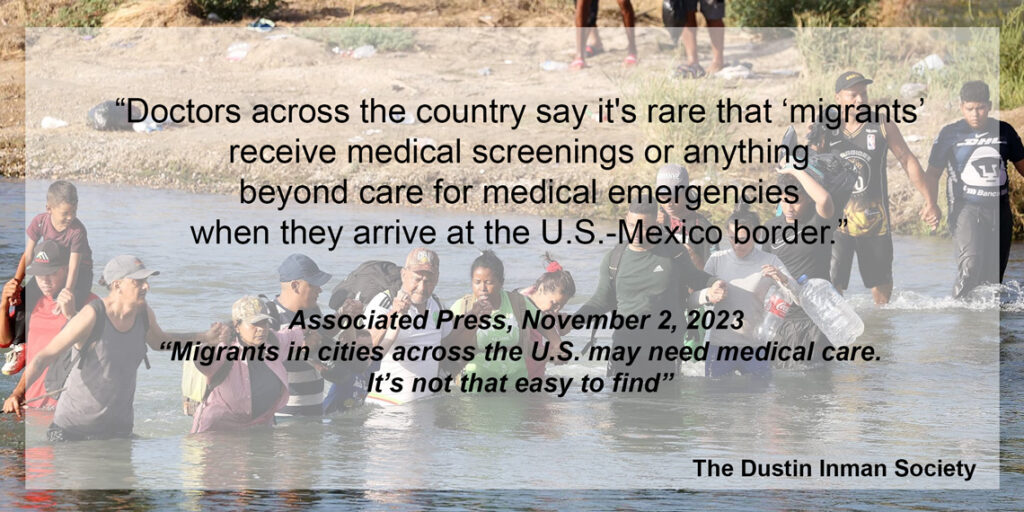

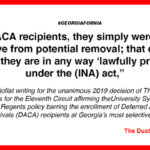

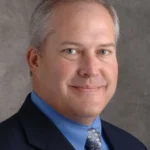



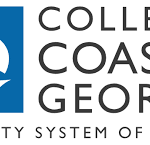
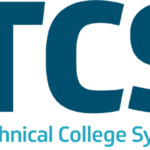
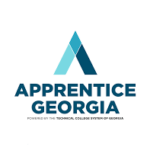







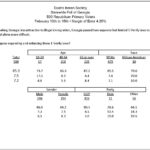




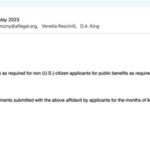
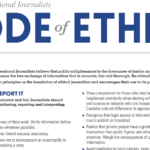





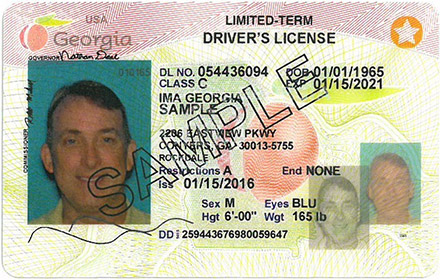




You must be logged in to post a comment.